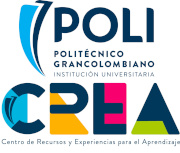Typicality of Incest in Common-law Marriages
Tipicidad del incesto en la unión marital de hecho;
Tipicidade do incesto na união marital de fato
Resumen
This article shows the way Law 54 of 1990 defined common-law marriage in Colombia. Legally, common-law marriage is a way to constitute a family through natural ties. This family is expressed in the Superior Statute, which establishes this union as the essential core of the society, acquiring integral quality within the social state of law and forcing the State and the society to protect it as a legal right by means of the Criminal Law. Incest –understood as carnal knowledge or other sexual act with a predecessor, descendant, adoptive parent, or sibling– destabilizes and imperils the family institution. Common-law marriages composed by incestuous relatives are a punishable behavior and not a marital estate. El presente artículo expone cómo en Colombia la Ley 54 de 1990 definió la unión marital de hecho. Jurídicamente, la unión marital de hecho es una forma para constituir una familia por vínculos naturales, plasmada en el Estatuto Superior, el cual consagra esta unión como núcleo fundamental de la sociedad, con lo que adquiere calidad integrante en el Estado social de derecho, y obliga al Estado y a la sociedad a su protección integral a través del derecho penal como bien jurídico. El incesto, como realización del acceso carnal u otro acto sexual con un ascendiente, descendiente, adoptante o adoptivo, o con un hermano o hermana, desestabiliza y pone en peligro la institución familiar, y en ello la unión marital de hecho compuesta por parientes endogámicos es una conducta punible y no una sociedad patrimonial. O presente artigo expõe como na Colômbia a Lei 54 de 1990 definiu a união marital de fato. Juridicamente, a união marital de fato é uma forma para constituir uma família por vínculos naturais, plasmada no Estatuto Superior, o qual consagra esta união como núcleo fundamental da sociedade, com o que adquire qualidade integrante no Estado social de direito, e obriga ao Estado e à sociedade a sua proteção integral através do direito penal como bem jurídico. O incesto, como realização do acesso carnal u outro ato sexual com um ascendente, descendente, adoptante ou adoptivo, ou com um irmão ou irmã, desestabiliza e põe em perigo a instituição familiar, e em isto a união marital de fato composta por parentes endógamos é uma conduta punível e não uma sociedade patrimonial.
Recurso relacionado
https://journal.poligran.edu.co/index.php/panorama/article/view/551Colecciones
- Panorama [303]
Estadísticas Google Analytics

